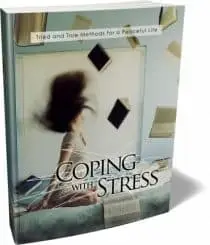Description
Can stress be defined? Is it uniform all through the human race, in all
people, across geographical boundaries and time?
Stress, whether physiological, biological, or psychological, is the body’s response to a stressor. It is the way the body reacts to threats, challenges, or barriers. Adrenaline and cortisol are the two hormones produced during stressful situations. There are two types of stress hormone levels: resting cortisol levels and reactive cortisol levels. Multiple systems in the body respond to stimuli that change an organism’s environment, with the autonomic nervous system and hypothalamic-pituitary-adrenal axis being the main systems in humans and most mammals.
The sympathoadrenal medullary (SAM) axis may activate the fight-or-flight response through the sympathetic nervous system, which dedicates energy to more relevant bodily systems to acute adaptation to stress, while the parasympathetic nervous system returns the body to homeostasis.
The second major physiological stress-response center, the HPA axis, regulates the release of cortisol, which influences many bodily functions such as metabolic, psychological and immunological functions. The SAM and HPA axes are regulated by several brain regions, including the limbic system, prefrontal cortex, amygdala, hypothalamus, and stria terminalis. Through these mechanisms, stress can alter memory functions, reward, immune function, metabolism and susceptibility to diseases.
Disease risk is particularly pertinent to mental illnesses, whereby chronic or severe stress remains a common risk factor for several mental illnesses.
What Is Stress?
Stress is probably one of the terms that are bandied about the most in the 21st century but people know about it the least. Though almost everyone says that they are stressed out, they cannot actually define
stress.
So, what’s the definition anyway?
The Cambridge Dictionary (International Edition) defines stress as great worry caused by a difficult situation or something which causes this condition. The Oxford Dictionary defines it as pressure or worry
resulting from mental or physical distress, difficult circumstances, etc.
From these definitions, we can arrive at this – When there is some situation or circumstance in our lives that we find difficult to cope with, the resulting condition in our mind is known as stress.
When we are stressed, we find it very difficult to rationalize our circumstances. In most people, it has been observed that stress can totally exhaust their mental potential to think. Even if there is a way out of their predicament, because of the stress, they will fail to see it.
This is what makes the stressful situation worse. The problem is that when you have stress playing in your mind, the one sure way to remove it is to eliminate the circumstance that has caused it. But in many people, when stress begins to play on their minds, they are quite unable to think and so they do not understand what they must do to eliminate the cause. This worsens their stress.
With this ebook you will:
- Learn to use stress management as a survival mechanism.
- Begin to explore different ways of looking at stress.
- Begin to manage stress better by acknowledging the power we have over ourselves and the outcomes we face.
- Learn how to manage your stress in a way that can help you to become the best person you can possibly becreate the lifestyle of your dreams without the added negativity.




Reviews
There are no reviews yet.